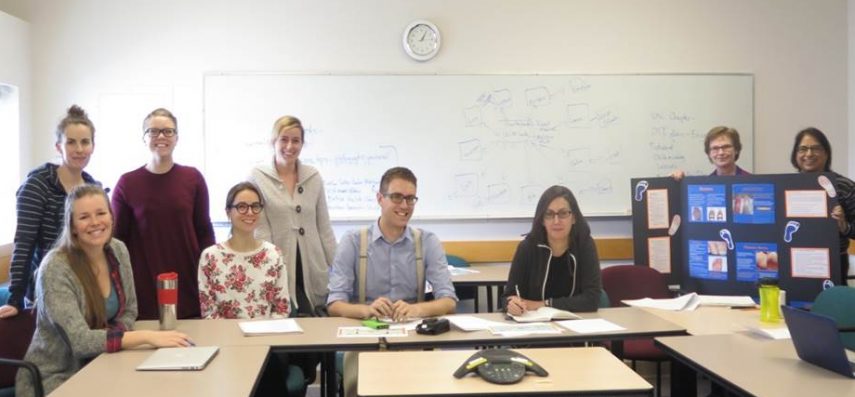The University of British Columbia’s accelerated Bachelor of Science in Nursing is one of the shortest BSN programs in Canada. In 18 months, the school shapes its students’ professional identities: their ethics, professional standards, and their niche within the health care system.

The School of Nursing’s curriculum and placements include community health, but the faculty note that many students gravitate towards high technology and high acuity clinical placements and careers. It’s also understandable that fewer students voice an interest in working in community health to support vulnerable populations with addiction and mental health issues – areas of care where resources and supports are in high need.
In early 2016, two nursing faculty and 10 students within the School volunteered to pilot the Institute for Healthcare Improvement’s I-CAN certificate program, an eight-week program to engage health students in their community. The School partnered with Vancouver’s Union Gospel Mission (UGM) in the Downtown Eastside. Under faculty supervision, students routinely offer foot soak clinics at UGM as part of their community health learning experience. These foot soak clinics presented an ideal opportunity to launch the I-CAN project: to explore ways to identify UGM clients’ health needs and connect them to primary care health services in the Downtown Eastside. One goal of the I-CAN project was to determine how to link UGM clients to clinic services—avoiding health care exacerbations and unnecessary visits to the emergency room.
The nursing students began the project with no small amount of trepidation and uncertainty about working with people coping with homelessness, poverty, and issues with addiction and mental health. As well, they were initially discouraged by the daunting task of attempting to make an impact in such a short period of time and in a new and challenging environment.
But soon enough, the students were inspired and impressed with their ability to enact change, describing the experience as “empowering,” “energizing,” and “eye-opening.” In eight weeks they learned how to build collaborative relationships with UGM and other community partners; they began piloting a primary care referral process for UGM clients; and they created “Teachable Moments” foot care cards in English and Cantonese to review with clients during foot soaks. A second offering of the I-CAN project is currently underway with another set of students who are carrying on referral process pilot work. In addition, there are at least 10 new UBC School of Nursing-community partner projects in process with vulnerable populations in the Vancouver area.
These experiences have rewarded students with a sense of purpose and a new level of empathy for populations who struggle to attain access to key social determinants of health. The School’s faculty commented on how this “rapid pace of learning and doing” exceeded their expectations. They attribute project’s successes to the incredible leadership and momentum demonstrated and generated by the students involved.

